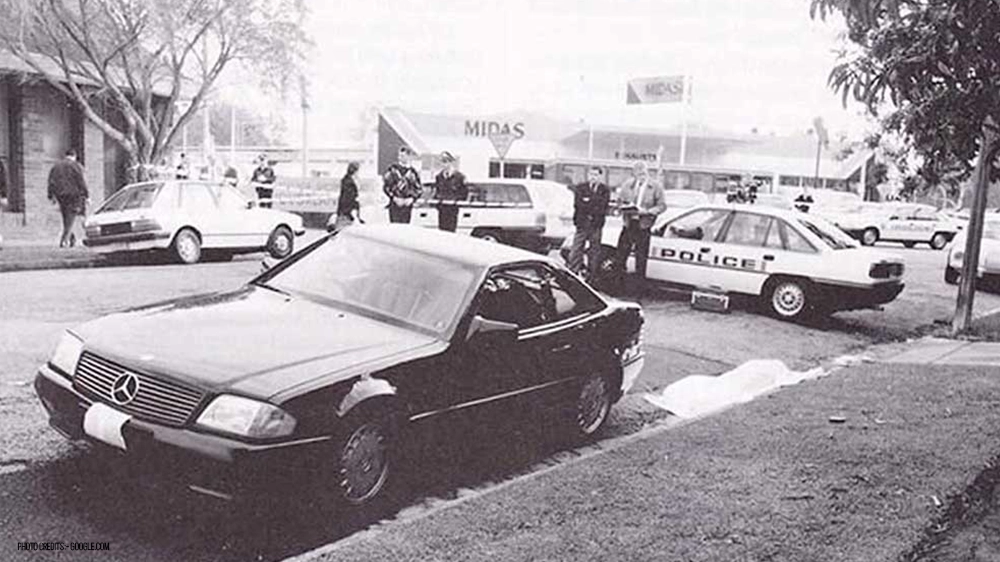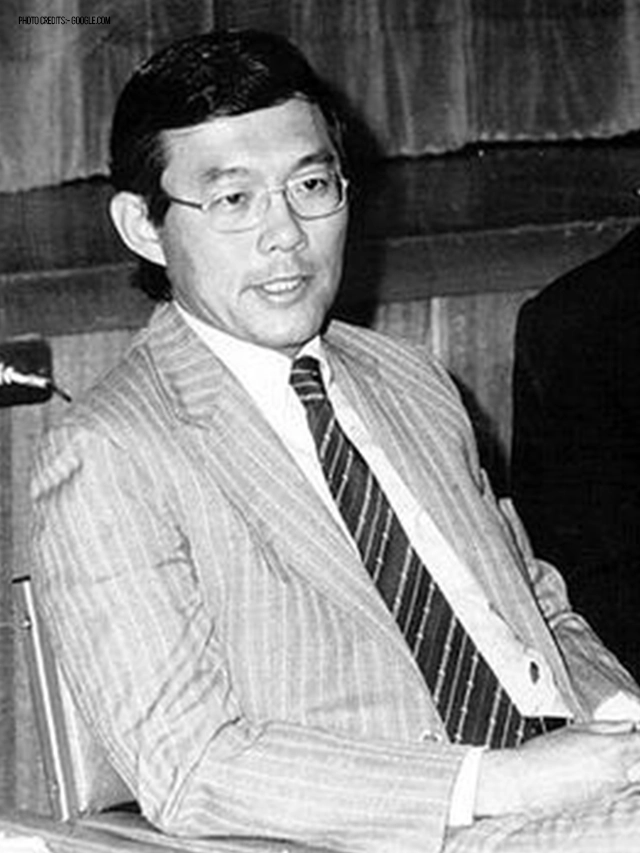
HEALTH BLOG
Dr Victor Chang Cause of Death: A Tragic End to a Remarkable Life
-
Rahul Priydarss
Dr Victor Chang Cause of Death occurred on July 4, 1991, when he was tragically shot during a failed extortion attempt in Sydney, Australia. This blog post explores the life, achievements, and legacy of Dr. Chang, a pioneering heart surgeon known for revolutionizing heart transplantation. It details the events surrounding his untimely death, the individuals involved, and how his contributions to cardiac medicine continue to impact the world. Discover how the Victor Chang Cardiac Research Institute honors his memory by advancing cardiovascular research and ensuring his vision of compassionate, innovative healthcare lives on.
Introduction to Dr Victor Chang Cause of Death:
Dr Victor Chang was an extraordinary heart surgeon and pioneer in cardiac transplantation, whose work transformed the landscape of heart surgery in Australia and beyond. Known for his brilliance, compassion, and dedication, Dr. Chang saved many lives through groundbreaking heart transplants, innovative mechanical heart valves, and accessible healthcare.
While his contributions to the field of medicine remain unparalleled, the way his life came to a sudden and violent end is equally etched in public memory. On July 4, 1991, Dr. Chang was murdered during a botched extortion attempt carried out by two criminals. His untimely death robbed the world of a visionary and humanitarian, leaving a lasting impact on Australia’s healthcare system and society at large. This article explores in detail what happened on that fateful day, who was responsible for the crime, the impact of his death, and how Dr. Chang’s legacy continues to thrive.
Who Is Dr. Victor Chang:
Dr. Victor Chang (1936–1991) was a pioneering heart surgeon, medical innovator, and humanitarian, best known for revolutionizing heart transplantation in Australia and globally. His contributions to cardiac medicine continue to save lives through modern transplant techniques and artificial heart valves.
Born in Shanghai, China, Chang moved to Australia with his family as a child. His early exposure to the loss of loved ones inspired him to pursue medicine. He studied at the University of Sydney, where he earned his medical degree and trained as a heart surgeon. Chang’s professional journey took him across the world, with advanced training in the United Kingdom and the United States, before he returned to Australia to work at St. Vincent’s Hospital in Sydney.

Table of Contents
Key Achievements in Medicine: Dr. Victor Chang made profound advancements in cardiac surgery, becoming a leader in heart transplantation procedures. In an era when heart transplants were risky and survival rates were low, Chang improved surgical techniques, significantly increasing patient outcomes. His work saved the lives of many patients suffering from terminal heart conditions, providing new hope to those with few options.
In addition to performing heart transplants, Chang developed mechanical heart valves to assist patients with severe heart disease. These innovations had global implications, with Chang being recognized for his ability to combine technical excellence with patient care. His commitment extended beyond surgery—Chang frequently worked pro bono, offering his expertise to those who could not afford medical treatment.
Humanitarian Work and Vision: Dr. Chang’s work was fueled by a vision to make heart surgery accessible to everyone, regardless of financial status. His humanitarian efforts are as much a part of his legacy as his surgical innovations. Chang was instrumental in developing affordable healthcare solutions, and he played a vital role in fostering medical collaboration across countries. Before his tragic death, Chang was working toward establishing a world-class cardiac research institute that could continue advancing heart health and medical research. His vision of innovation, compassion, and accessibility became a guiding principle for generations of surgeons and healthcare professionals who followed in his footsteps.
Legacy: Although Dr. Victor Chang’s life was cut short in 1991 by a senseless act of violence, his impact endures. His memory is preserved through the Victor Chang Cardiac Research Institute, which remains at the forefront of cardiovascular research. In 1999, Chang was named “Australian of the Century” in recognition of his contributions to healthcare and humanity.
What Happened on the Day of Dr. Victor Chang’s Death:
On the morning of July 4, 1991, Dr. Chang left his home in Mosman, a suburb of Sydney, to drive to work at St. Vincent’s Hospital. As he drove along the Pacific Highway, two men flagged him down under the pretense of needing assistance. These men were Chiew Seng Liew and Phillip Lim, who had concocted an amateur extortion scheme to demand ransom from Chang. Believing Chang would be carrying a large sum of money or could access it quickly, the men tried to force him into cooperating.
When the situation escalated, Liew panicked and shot Dr. Chang in the head at close range. Despite efforts to revive him, Dr. Chang succumbed to his injuries at the scene. He was only 54 years old at the time of his death. The randomness and brutality of the attack left the nation reeling, as Australia lost one of its greatest medical minds in a senseless act of violence.
The Criminals Behind the Murder:
The two men responsible for Dr. Victor Chang’s death were Chiew Seng Liew and Phillip Lim, both originally from Malaysia. They had hatched a clumsy plan to extort money from Dr. Chang, targeting him because of his fame and presumed wealth. The plan, however, quickly unraveled.
Liew, the primary shooter, lost his composure during the confrontation and shot Dr. Chang when the situation became chaotic. Lim, although not directly involved in the shooting, participated in the extortion attempt and was later convicted for his role in the crime. Both men were arrested within days of the murder, and their trial drew significant media attention.
Liew received a life sentence for the murder, while Lim was handed a shorter sentence after cooperating with police during the investigation. The senseless nature of the crime and the involvement of two inexperienced criminals sparked outrage among the public and raised concerns about violent crime in Australia.
Dr. Victor Chang’s Impact on Cardiac Medicine:
Dr. Victor Chang was much more than a brilliant heart surgeon—he was a pioneer who helped make heart transplantation a viable option in Australia. Born in Shanghai, China, in 1936, Chang moved to Australia as a child and eventually pursued medicine, graduating from the University of Sydney. After training in heart surgery in the United Kingdom and the United States, Chang returned to Sydney and became a leading figure at St. Vincent’s Hospital.
Chang’s greatest contributions include his role in refining heart transplantation procedures and developing artificial heart valves that improved the lives of patients suffering from severe heart disease. He was not just a surgeon but also an innovator, striving to make advanced medical care available to people regardless of their financial status. He often worked pro bono, especially for those who could not afford life-saving surgeries, earning him immense respect and admiration.

How Did Dr. Chang’s Death Impact the Medical Community:
The death of Dr. Victor Chang was a devastating blow to both the Australian public and the global medical community. His work had given new hope to patients with end-stage heart disease, and his influence extended far beyond Australia. Chang had been working on creating a world-class cardiac research institute at the time of his death, a dream that would come to fruition posthumously.
Chang’s passing prompted an outpouring of grief from colleagues, patients, and the public. His death also highlighted the vulnerability of public figures, leading to discussions about personal security and crime prevention. At the same time, his loss spurred many in the medical field to carry on his legacy by advancing cardiac research and innovation.
The Creation of the Victor Chang Cardiac Research Institut:
One of the most significant ways Dr. Chang’s legacy has been preserved is through the establishment of the Victor Chang Cardiac Research Institute in 1994. Founded in his honor, the institute has grown into one of the leading centers for cardiovascular research in the world. Its focus includes heart transplantation, genetic heart disorders, and artificial heart valves, areas where Chang had laid the foundation for future progress.
The institute not only advances research but also promotes public awareness about heart disease. It offers scholarships and awards to medical students and researchers who embody Dr. Chang’s passion for excellence and dedication to humanity.
Dr. Chang’s Legacy: How He Is Remembered Today:
Dr. Victor Chang’s memory lives on through numerous initiatives and honors. In 1999, he was named “Australian of the Century” by the people of Australia, a testament to the impact he had on the nation. His name is immortalized in schools, public buildings, and medical scholarships, ensuring that his contributions to healthcare will not be forgotten.
Dr. Chang is also remembered for his personal qualities—his humility, kindness, and unwavering dedication to saving lives. The Victor Chang Cardiac Research Institute continues to make strides in the field of heart health, carrying forward his vision of accessible and innovative healthcare.
What Lessons Can Be Drawn from Dr. Victor Chang’s Death:
Dr. Victor Chang’s death is a stark reminder of the unpredictability of life and the tragic consequences of violence. His murder revealed the fragility of human life, even for someone as accomplished and revered as Chang. It also highlighted the importance of security measures for public figures and the need to combat crime through effective law enforcement and public awareness.
At the same time, the legacy of Dr. Chang teaches us about the power of compassion, dedication, and innovation. His work saved countless lives, and his memory continues to inspire doctors, researchers, and philanthropists to strive for a better world.
FAQs about Dr Victor Chang Cause of Death:
A1: Dr. Victor Chang was shot and killed on July 4, 1991, during a failed extortion attempt in Sydney, Australia.
A2: Two men, Chiew Seng Liew and Phillip Lim, were responsible for the murder during a botched extortion plot.
A3: Dr. Chang was killed along the Pacific Highway in Sydney, near his home in Mosman.
A4: His legacy is preserved through the Victor Chang Cardiac Research Institute, advancing cardiovascular research.
A5: The criminals believed he had access to money due to his fame, leading to a misguided extortion plan.

-Please remember, to always consult with healthcare professionals or Doctors for personalised advice related to medical conditions.
Conclusion:
Dr Victor Chang’s Cause of Death tragically on July 4, 1991, but his contributions to cardiac medicine continue to benefit the world. As a pioneer of heart transplantation and artificial heart valves, Chang transformed the field of cardiac surgery in Australia and globally. Although his life was cut short in a senseless act of violence, his legacy lives on through the Victor Chang Cardiac Research Institute and the countless lives saved through advancements in heart health. The tragic circumstances surrounding his death serve as a reminder of the importance of public safety, while his legacy encourages future generations to embrace innovation, empathy, and excellence in healthcare. Dr. Chang’s story is not just one of loss but of enduring impact, ensuring that his contributions will be remembered for generations to come.




